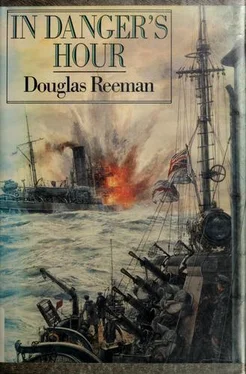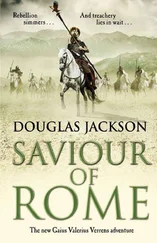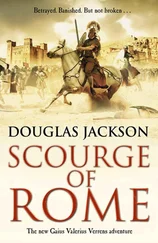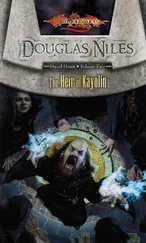Douglas Reeman - In Danger's Hour
Здесь есть возможность читать онлайн «Douglas Reeman - In Danger's Hour» весь текст электронной книги совершенно бесплатно (целиком полную версию без сокращений). В некоторых случаях можно слушать аудио, скачать через торрент в формате fb2 и присутствует краткое содержание. Город: London, Год выпуска: 1988, ISBN: 1988, Издательство: Putnam Adult, Жанр: prose_military, Морские приключения, на английском языке. Описание произведения, (предисловие) а так же отзывы посетителей доступны на портале библиотеки ЛибКат.
- Название:In Danger's Hour
- Автор:
- Издательство:Putnam Adult
- Жанр:
- Год:1988
- Город:London
- ISBN:9780399133886
- Рейтинг книги:5 / 5. Голосов: 1
-
Избранное:Добавить в избранное
- Отзывы:
-
Ваша оценка:
- 100
- 1
- 2
- 3
- 4
- 5
In Danger's Hour: краткое содержание, описание и аннотация
Предлагаем к чтению аннотацию, описание, краткое содержание или предисловие (зависит от того, что написал сам автор книги «In Danger's Hour»). Если вы не нашли необходимую информацию о книге — напишите в комментариях, мы постараемся отыскать её.
Battlecruiser
Iron Pirate
Horizon
White Guns
Sunset
In Danger's Hour — читать онлайн бесплатно полную книгу (весь текст) целиком
Ниже представлен текст книги, разбитый по страницам. Система сохранения места последней прочитанной страницы, позволяет с удобством читать онлайн бесплатно книгу «In Danger's Hour», без необходимости каждый раз заново искать на чём Вы остановились. Поставьте закладку, и сможете в любой момент перейти на страницу, на которой закончили чтение.
Интервал:
Закладка:
She said, ‘You’re very kind to me. And thank you for what you just said.’
He smiled and held out his hand. ‘I’m Philip Sherwood, by the way.’
She saw his jacket hanging from a chair. ‘Navy. I’m so glad.’
He did not ask her what she meant. Perhaps it was because her dead husband who had loved and known her, but made the mistake of marrying in war, had been in another service.
Sherwood went into the tiny kitchenette while she used the bathroom. He heard her climb into bed. It must seem a far cry from Dorset, he thought. Suppose there was another air-raid? They might be found together, like poor Tinker’s mother had been discovered.
He downed another glass of neat gin. So nobody lives forever.
The excitement, the strain of the past months, and the gin took their toll, and within minutes he was fast asleep, slumped across the kitchen table.
He did not hear the wail of the Ail-Clear , nor did he feel the girl come to the kitchen and cover his shoulders with a blanket.
They had both learned a lot about themselves; if not each other.
‘When Are You Going Back?’
Ian Ransome paused outside the boatyard gates and removed his cap to allow the lively Channel breeze to drive away the discomfort of the journey. There was a hint of haze above Gribbin Head where it thrust itself out into the sea like the bastion of some ancient fortress: a sign of an early summer perhaps.
He turned and looked through the sagging wire gates, then up at the big board which stated, Edward Ransome and Sons, Boatbuilders. The sign was flaking, and Ransome felt a touch of sadness for his father. He was carrying on as best he could, and from the din of saws and hammers within the yard, there was more than enough work to do. Ediuard Ransome and Sons. Now, one was sweeping mines, the other doing heaven knew what with torpedoes and deadly cannon-fire.
He walked through the entrance and stared in wonderment at the activity on every hand. Not graceful yachts or stocky fishing-boats, but hulls that looked more like giant egg-boxes than anything that floated.
A voice said, ‘Bit of a come-down, eh, Mr Ian?’
Ransome swung round, then seized the rough hand of the yard’s foreman, Jack Weese. Ancient yet timeless, as much a part of the boatyard as any frame or timber in it. Ransome knew he must be well into his late sixties, but he seemed exactly the same, as he had always looked. Heavily built, his shoulders rounded by stooping over every sort of craft from dinghy to ocean-racer, he was wearing a spotless white apron, and of course his cloth cap.
The latter was occasionally changed at Christmas-time when one of his offspring presented him with a new one.
Weese said, ‘Landing-craft – infantry jobs.’ He eyed the nearest with distaste, his eyes wrinkled against the glare. ‘Bloody things. Still, it’s a living.’
‘I didn’t know you were building them, Jack?’
Weese shrugged and eyed him keenly. ‘Bless you, Mr Ian, they’re throwing ’em together all the way from here up to Lostwithiel. For the Second Front, whenever that’s going to be.’
Ransome fell into step beside him while Weese pointed out the various stages of construction, and all the strange faces who had been brought to work on the landing-craft.
‘They don’t know what an apprenticeship is,’ he said scornfully. ‘Just give ’em a hammer and nails, that’s about their style!’ He added, ‘You look a bit bushed, if I may say so.’
Ransome smiled. ‘As you say, Jack, it’s a living.’
They paused by a small jetty and Ransome asked, ‘Where is Maggie May ?’
She was an old tug, very small, which his father had used first on the Thames, then down here for local jobs, towing timber to the yard, or moving craft to difficult berths. Like Jack, she was a part of it from the beginning.
He recalled his mother’s horror in what Churchill referred to as ‘the Dark Days’ when she had discovered that the elderly tug was missing from the yard.
One of the local coastguards had told her, ‘Mr Ted’s gone to sea in the old girl, Missus. You know he’s always wanted to.’
Ransome recalled the touch of pride and love he had felt when the news had reached him.
His father had taken the little tug with some of the fishermen from Fowey and Polruan, and of course Jack Weese, to a place over the other side called Dunkirk. It was still a miracle they had survived, let alone brought off some fifty soldiers in two trips.
Jack Weese said quietly. ‘Your lot have taken her for the duration. I hope they looks after her.’ He sounded like a man who had lost an old friend.
Ransome nodded. ‘What about my—’
Weese cheered up and grinned, his eyes vanishing again.
‘Your Barracuda ? God, I’ve fought harder for her than me bloody pension!’
They walked through the litter of rusting metal and wood offcuts until Ransome saw the long hull resting on stocks, her deck and upperworks covered by patched tarpaulins.
Barracuda had been his dream. She was a big motor-sailer of some forty-six feet, one he would cruise in, and if necessary live aboard when the time came.
When not working on plans for his father and learning more about the craft of boat-building, Ransome had spent his spare time and the long summer evenings working on his boat. The hull had been overhauled, and some of the inside accommodation completed when Ransome had been called to make use of all the training he had done with the peacetime RNVR. She had stood here ever since, and Weese had indeed fended off the greedy approaches of Admiralty agents who toured the ports and harbours around Britain in search of vessels which might be thrown into naval service. A sort of press-gang, as Weese put it; not to be tolerated in Fowey.
The agents had insisted on taking Barracuda’s two diesel engines for war service in some harbour-launch or other, but the hull was still safe.
Weese watched as he crouched under the canvas awning, reliving all those dreamy days when he had come here. Ransome ran his hands along the curved planking. Old, but a proper boat, a thoroughbred. The girl had come here to watch, to sit with him, or just to sketch. He straightened his back, and looked across the harbour to the village of Polruan on the opposite side. The little houses banked street upon street, the pub by the jetty where the tiny ferry chugged back and forth. He had taken her to the pub once. She had been too young to go inside, but they chatted together on the benches near the jetty. A slim, sprite-like girl with long hair who had put away a Cornish pasty from the pub as if it was a mere crumb. He remembered her eyes while she had listened to him; her bare knees had usually been scratched or grubby from exploring the water’s edge and this same boatyard, ‘Memories, Mr Ian?’
‘A few, Jack.’
Weese waited for him to re-tie the tarpaulin. ‘When are you going back?’
Ransome grinned. Everyone said that, as soon as you came on leave. ‘A week. I can spare that.’ His inner voice said, I need it.
Weese said, ‘Mr Ted’s over in Looe Bay today. He’ll be here before dusk.’ He watched Ransome’s profile. ‘A freighter was torpedoed off the Knight Errant Patch a week back. There’s some quite good timber washed ashore. Pity to waste it.’
Ransome slapped his shoulder. ‘Years ago you would have been a wrecker!’
He hesitated, then asked suddenly, ‘You remember the kid who used to come here in the school holidays? She sketched things – pretty good too.’
Weese nodded. ‘I remember her. Her dad turned out to be a Holy Joe, didn’t he?’ His eyes became distant. ‘She did come here again.’ He was trying to fit it into place, so he did not see the sudden anxiety in Ransome’s grey eyes. ‘Same cottage as the other times.’ He bobbed his cap towards Polruan. ‘Your brother, Mr Tony would know. I think they went to a dance together over at St Blazey when he joined up.’
Читать дальшеИнтервал:
Закладка:
Похожие книги на «In Danger's Hour»
Представляем Вашему вниманию похожие книги на «In Danger's Hour» списком для выбора. Мы отобрали схожую по названию и смыслу литературу в надежде предоставить читателям больше вариантов отыскать новые, интересные, ещё непрочитанные произведения.
Обсуждение, отзывы о книге «In Danger's Hour» и просто собственные мнения читателей. Оставьте ваши комментарии, напишите, что Вы думаете о произведении, его смысле или главных героях. Укажите что конкретно понравилось, а что нет, и почему Вы так считаете.












